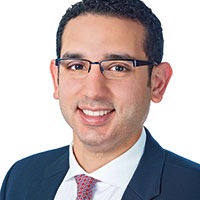

The Middle East has witnessed strong momentum within the hospitality industry, as well as market sentiment, following the Covid-19 pandemic as both investors and travelers seek to capitalize on the back of a rebounding economy.
Pertaining to hotel investments, while there was clear evidence of recovery in global hotel M&A activity in 2021 and 2022, it now faces new headwinds in the short and medium term. In 2022, the total number of transactions reached USD 71 billion, despite a small decline in the back-half of the year due to geopolitical tensions and capital market dislocation. The Middle East continues to witness strong trading and development activity as it is underpinned by robust leisure demand and international tourism events, even in Dubai after Expo 2020, ultimately allowing the area to outperform other regions.
Brands set for KSA’s giga projects
Several mega and giga projects have been launched across the region, aimed at reinforcing the Middle East’s competitiveness as a year-round destination for global travelers. Saudi Arabia has been at the forefront of such developments, as part of broader efforts to diversify the economy away from oil. The Kingdom’s investment arm, the Public Investment Fund (PIF), has allocated substantial resources – an estimated USD 870 billion – over the next 10 years toward its giga projects, which include Neom, Qiddiya, Diriyah Gate and the Red Sea Development, alongside many others. Forecasts indicate that the supply of PIF-led keys will surpass that of the private market by the mid-to-late 2020s, primarily driven by quality upscale and luxury developments. This has offered the ideal playground for a plethora of brands and operators to select from a wide range of portfolio or standalone assets. The influx of new brands into the market also offers a unique opportunity to incorporate exceptional concepts that have yet to be launched in the region.
UAE prioritizing long-term growth
The UAE is currently embarking on several ambitious projects that look set to redefine the sphere of the local hospitality market. Dubai has shifted its vision from singular events that provide a short-term boost to the economy toward long-term growth strategies aimed at diversifying the economy and encouraging greater investment in the city. This is primarily driven by Dubai’s 2040 Urban Plan,
which aims to cement the city’s status as a global destination over the next 20 years, providing the ideal ground for hospitality developments in key areas such as Downtown and Business Bay, the Expo 2020 site, Dubai Silicon Oasis, Deira and Bur Dubai, JVC, Dubai Marina and JBR. Elsewhere in the country, Abu Dhabi and Ras Al Khaimah are developing high-profile hospitality projects in a bid to attract visitors and encourage them to spend some time there, rather than making Dubai their sole destination. Abu Dhabi’s projects include new developments in Ramhan Island, Al Nawras Island, Saadiyat Island and Mina Zayed Redevelopment, among others, while Ras Al Khaimah’s Al Marjan Island will be home to a portfolio of hotels, as well as the first iconic Wynn casino complex in the region, in what represents a landmark development for the emirate.
Slower pace for construction
The post-pandemic rebound continues to weigh the strongest in the Middle East and Africa, witnessed by an accelerated RevPAR recovery in 2022 of 116 percent above 2019 values. However, strong headwinds pertaining to financing struggles, due to elevated interest rates, as well as rising construction costs, have placed significant strain on the viability and development pace of new projects.
While demand to initiate or continue construction projects has surged, shortages in natural resources and labor after the pandemic and due to the Russia-Ukraine war has caused significant delays in the inflow of supply into the market.
This has assisted in mitigating supply risk in both the short and medium term, providing an opportunity for further growth in fundamental performance, particularly via hotel room rates. With the costs to buy less than the cost to construct, an increase in acquisitions can be expected, as well as possible conversions of single assets. This is most likely in Cairo, Dubai, Riyadh, Jeddah and key Moroccan markets that are open to the sale and acquisition of hospitality assets, given the appropriate positioning and pricing of the property.
Fundamentals remain strong
While ongoing macroeconomic volatility and capital market uncertainty could shrink hotel investment activities, fundamental performance is expected to remain robust in 2023 since it is underpinned by strong international travel and muted supply growth. This, coupled with impending debt maturity on the horizon, will catalyze hotel investment opportunities. Evidently, buyers who are liquid and less reliant on leverage will gain a substantial advantage in acquiring quality assets. The abundance of hotels associated with branded residential offerings has also risen in popularity over the past two years. This has allowed owners to not only sell faster, but yield to a greater extent as financial hurdles are achieved at a more rapid pace or before assets become stabilized. This illustrates strong market fundamentals and sentiment for bundled assets that incorporate both short- and long-term stay components and a shift to cater to a wider selection of guest preferences than before. Ultimately, owners can overcome the headwinds and mitigate these impacts on the performance of properties. With the lines between work, life and travel having become blurred in the post-pandemic era, traditional hotel brands and investors have opportunities to take their hospitality assets to new heights by expanding their product offering. This is expected to occur primarily in luxury spaces, with related brands looking to expand their horizons in 2023 and own the entire traveler experience.
Tapping new opportunities
Overall, the market will continue to recover and adjust, with the landscape becoming a playground for both investors and owners as new market opportunities form throughout the region. Although financing and construction headwinds continue to disrupt the market, sentiment remains strong and is clearly evident in topline performances. With shifting trends, it is critical that stakeholders remain vigilant and embrace the new changes brought about by the pandemic in order to maximize performance, as well as guest experiences.

Head of hotels and hospitality
JLL MENA














